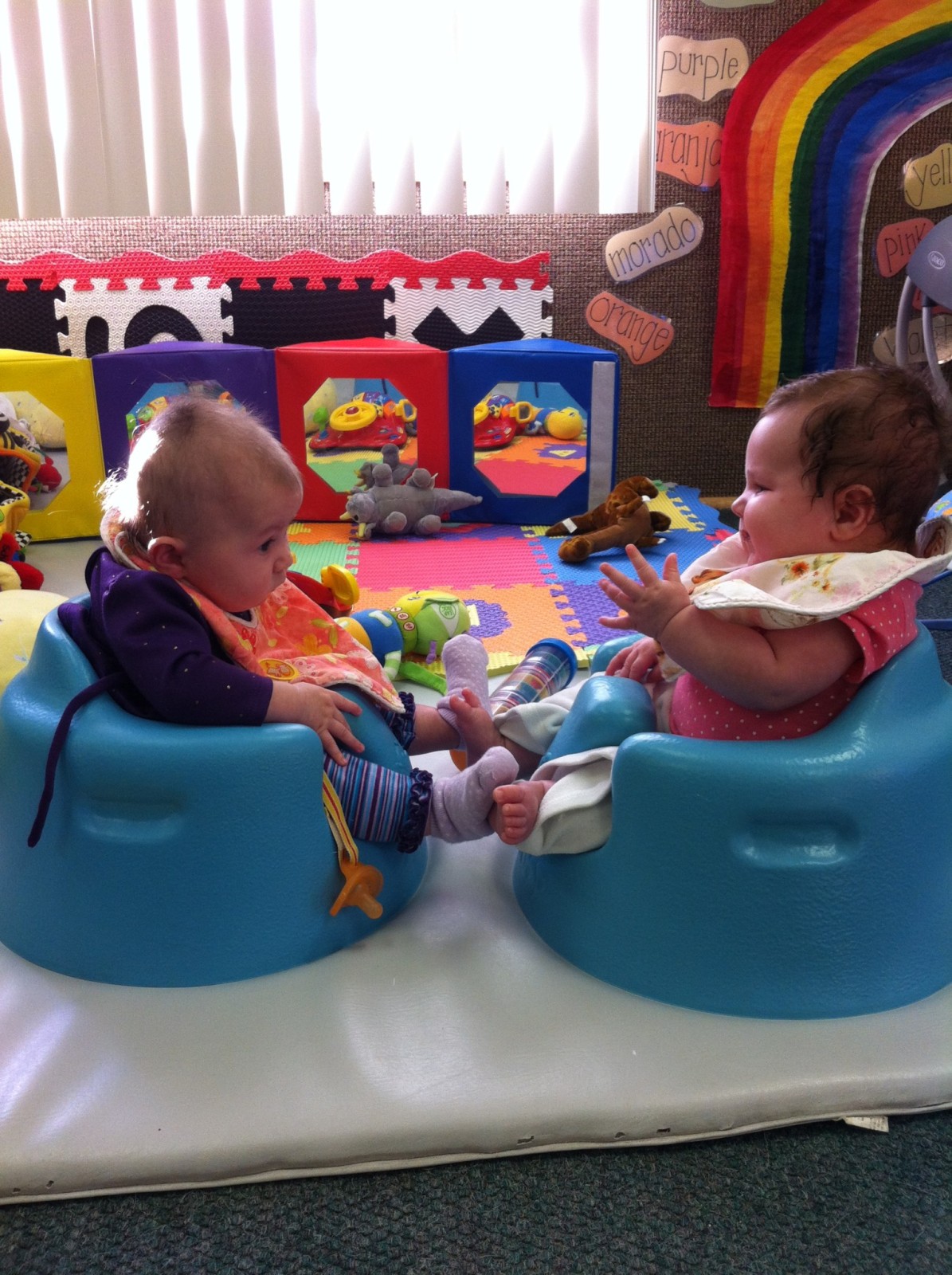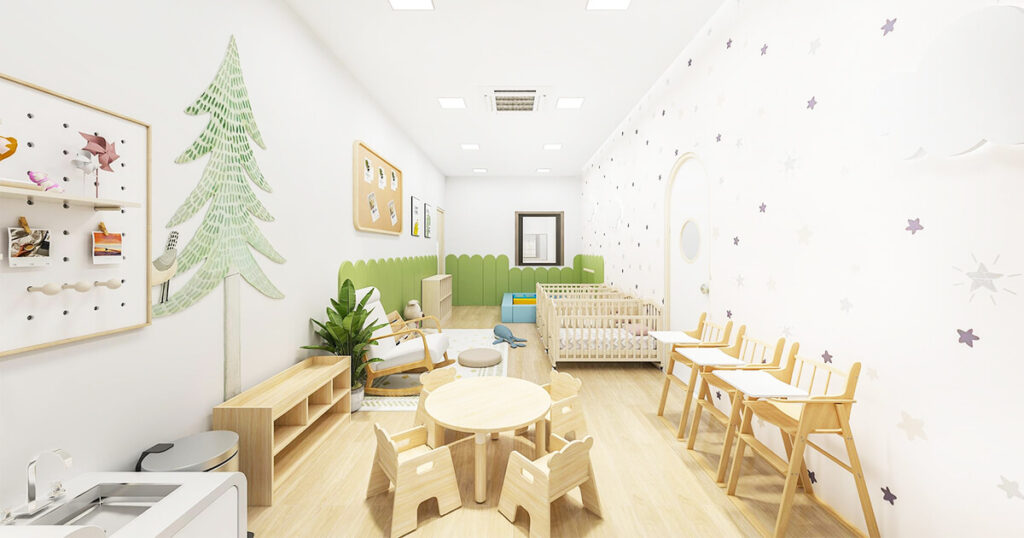The Role of Day Care in Fostering Social Abilities and Early Understanding
Daycare works as a significant environment for young youngsters, helping with crucial social communications that promote very early learning. In this organized setup, kids engage with peers and caregivers, establishing essential communication and participation abilities. As they browse play and different activities, they find out to fix problems and develop emotional intelligence. Comprehending the subtleties of these communications reveals the profound impact childcare carries a child's development, shaping their future connections and academic readiness. What certain abilities do youngsters acquire in this setup?
The Importance of Social Communication in Daycare
While lots of parents recognize the significance of early childhood education and learning, the role of social communication in day care is typically underestimated. Childcare settings provide kids with vital possibilities to engage with peers, cultivating essential social skills. During these formative years, youngsters find out to navigate different social characteristics, such as sharing, teamwork, and dispute resolution. Communicating with diverse age groups and personalities enhances their capability to adjust to different settings and develop compassion in the direction of others.

Structure Interaction Skills Via Play
Play functions as a powerful tool for youngsters to construct critical communication skills in childcare setups. Via different play tasks, youngsters engage in discussions, share their thoughts, and learn to pay attention to others. Role-playing video games, for circumstances, urge them to utilize language in different contexts, promoting vocabulary growth and understanding of social signs.

Moreover, narration during playtime permits kids to communicate emotions and ideas, assisting them establish narrative skills and self-confidence in their verbal expressions. On the whole, play not just functions as a delightful leisure activity but likewise as a crucial system for creating the communication abilities required for effective social interactions in later life.
Motivating Participation and Teamwork
Teamwork and teamwork are important skills that kids can cultivate in daycare environments. With various team tasks, such as constructing jobs or joint games, kids find out to share duties and job towards common goals. These interactions cultivate an understanding of the significance of listening to others, working out functions, and jeopardizing when necessary.
In daycare settings, caretakers commonly create opportunities for kids to involve in team effort by motivating them to join group tasks. This not only helps youngsters establish social bonds however additionally grows a sense of belonging and neighborhood.
As they navigate these cooperative experiences, kids acquire valuable insights right into the characteristics of working with peers. They discover to value diverse point of views and identify that each participant contributes uniquely to the team effort. Eventually, these early lessons together and team effort lay the foundation for healthier relationships and efficient partnership in future social and scholastic setups.
Structured Discovering Activities and Cognitive Growth
Structured discovering activities play an integral role in promoting cognitive development in children (Child Care Near Me). These activities, that include puzzles, narration, and hands-on experiments, stimulate critical reasoning and problem-solving abilities. In a daycare setting, structured knowing motivates youngsters to engage with their peers, boosting their ability to procedure details and recognize different principles
Through guided play and interactive tasks, children establish foundational skills such as numeracy and proficiency. Tasks focused around numbers can assist youngsters realize mathematical ideas, while narration improves language acquisition and comprehension. Furthermore, structured discovering permits educators to analyze developing progression and tailor tasks to individual knowing demands.

Including a varied variety of organized tasks not just advertises cognitive development yet also prepares children for future academic success. By providing a balanced environment that promotes exploration and inquiry, daycare programs play a necessary duty in forming the cognitive capacities of young students.
Fostering Emotional Intelligence and Confidence
Psychological knowledge and confidence are vital elements of a child's advancement, enhancing the cognitive abilities cultivated through structured discovering tasks. In daycare setups, youngsters are supplied with chances to reveal their emotions and participate in social interactions, which are vital for building psychological understanding. Via led play and group activities, youngsters learn to identify their feelings, identify those of others, and develop empathy.
Communication with caretakers and peers helps to cultivate self-esteem and resilience. Positive support and inspiration from adults empower kids to take risks and face difficulties, cultivating a feeling anonymous of accomplishment. As they navigate social dynamics, youngsters build self-confidence in their capabilities to interact, work together, and deal with disputes - Childcare Near Me. This nurturing setting enables for the progressive growth of emotional intelligence, which is important for future interpersonal connections and general well-being. Because of this, day care plays a considerable role in fostering both emotional intelligence and confidence in children
Frequently Asked Concerns
Just How Can Parents Select the Right Childcare for Their Kid?
Moms and dads should think about elements such as place, team qualifications, security standards, educational program, and evaluates from various other moms and dads when selecting the right day care for their child, guaranteeing it aligns with their youngster's developmental demands and household values.
What Age Is Finest for Starting Daycare?

Just How Does Childcare Influence Children's Habits at Home?
Day care usually positively influences youngsters's habits in the house by enhancing social abilities, promoting independence, and motivating emotional law (Child Care Center). Because of this, children may display improved communication and collaboration, leading to even more harmonious family characteristics
Are There Any Type Of Downsides to Day Care Presence?
Yes, there are drawbacks to childcare presence, including possible separation anxiety, direct exposure to health problems, and irregular caregiving. These elements can influence a kid's emotional well-being and adjustment in the house, impacting overall family characteristics.
Just How Can Moms And Dads Assistance Social Abilities Discovered at Childcare?
Moms and dads can sustain social abilities discovered at day care by assisting in playdates, encouraging participating tasks, modeling favorable communications, talking about sensations, and enhancing sharing and communication in the house, thus improving their kid's social advancement and confidence.
Childcare serves as a significant environment for young children, helping with crucial social interactions that promote very early learning. Daycare settings supply youngsters with invaluable possibilities to engage with peers, promoting essential social abilities. Play offers check as a powerful tool for children to build vital communication abilities in daycare settings. In childcare setups, youngsters are offered with possibilities to express their feelings and engage in social interactions, which are critical for building pop over here emotional recognition. Childcare often favorably affects children's actions at home by improving social skills, advertising self-reliance, and motivating emotional guideline.